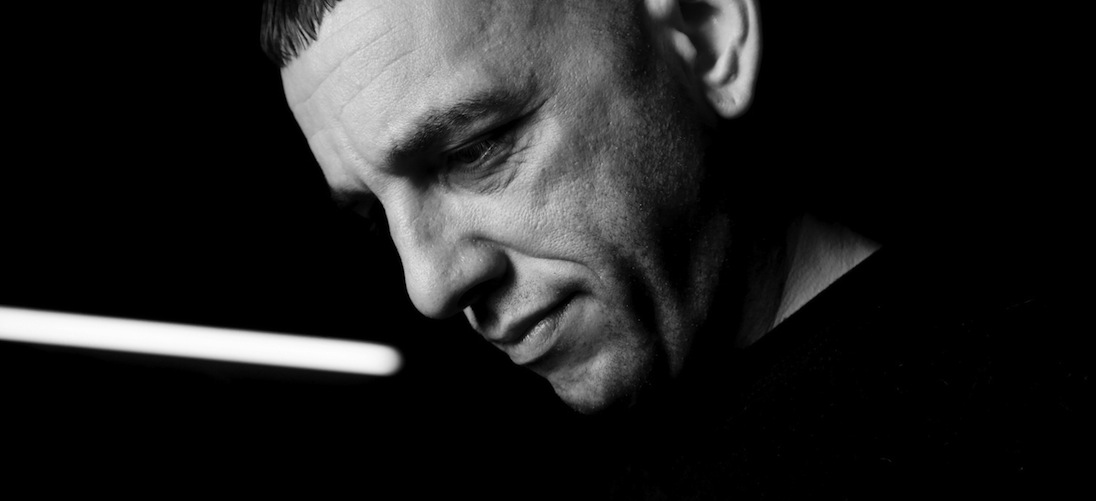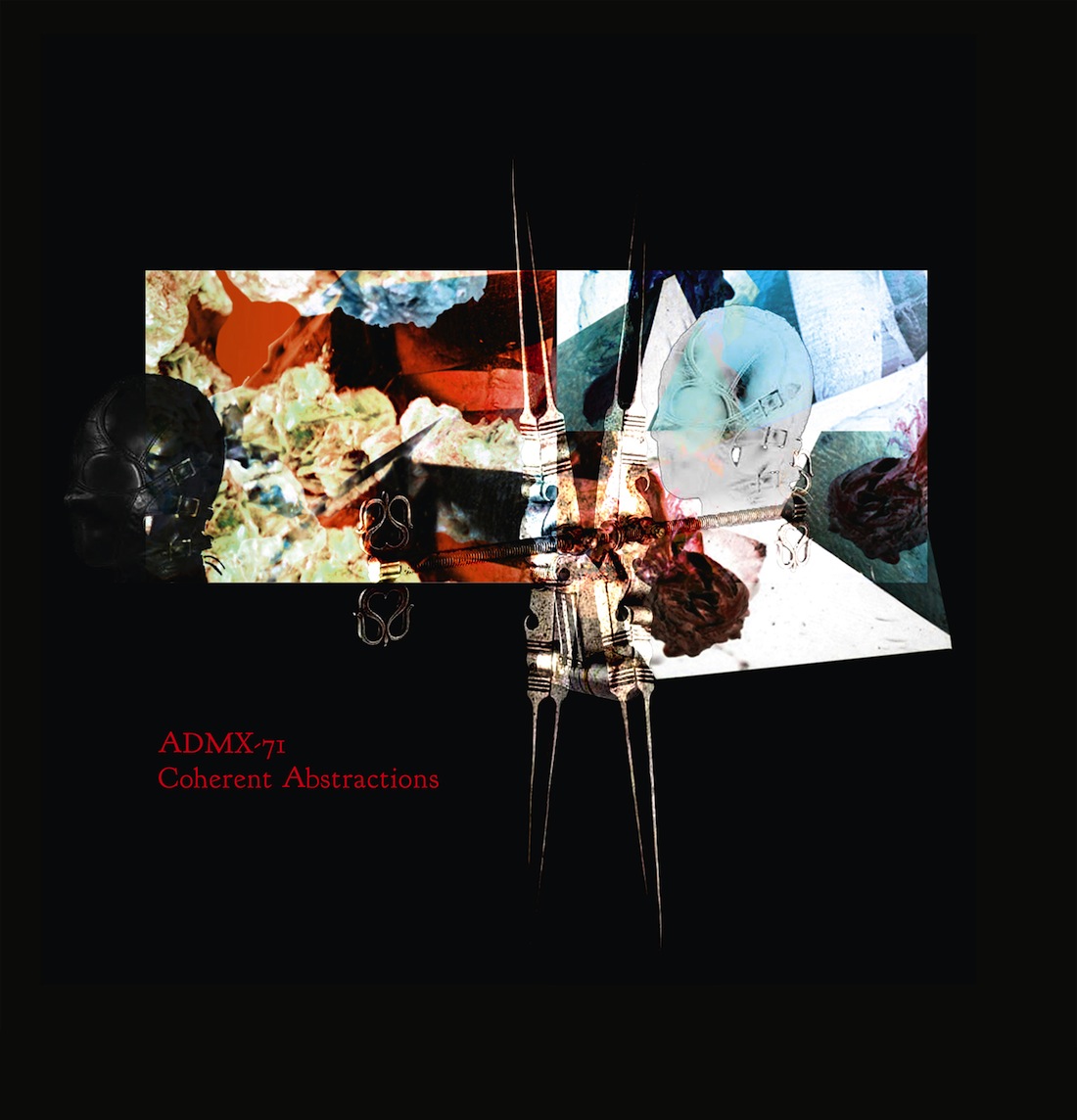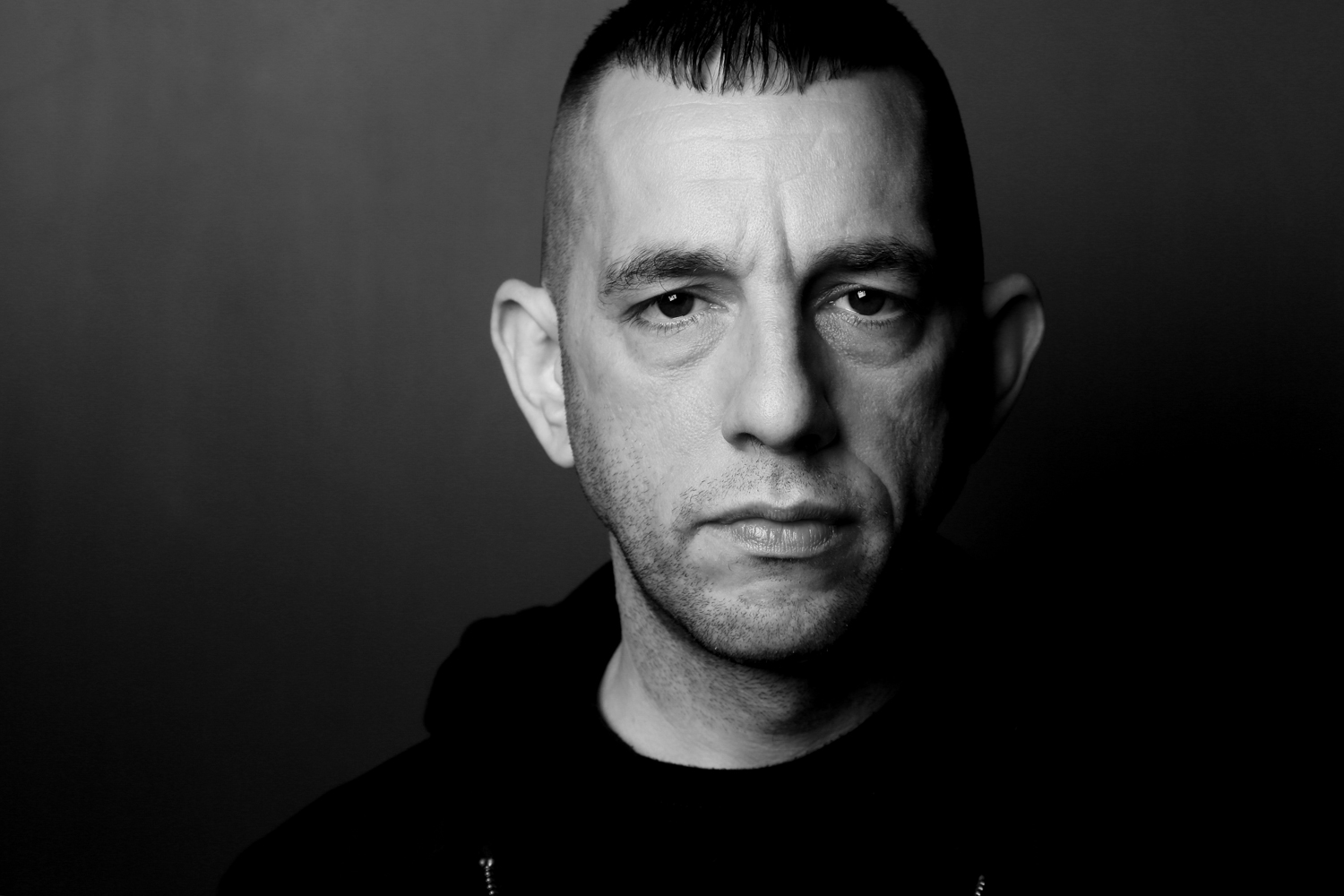Q&A: ADMX-71
Adam X's experimental-electronics alterego unveils an new album flush with fevered atmosphere.

Q&A: ADMX-71
Adam X's experimental-electronics alterego unveils an new album flush with fevered atmosphere.

By now, most techno fans—actually, make that most electronic-music fans—should be intimately familiar with the broad strokes of Adam X’s life story. But just in case, here it is, in simplified form: Growing up in a pre-gentrified Brooklyn with his sibling Frank, the man born Adam Mitchell got into graffiti at a young age in the early ’80s, then music via such quintessential drum-machine tracks as C-Bank’s “One More Shot” and Strafe’s “Set It Off.” By 1990, he and brother Frank, by now known as Frankie Bones, opened New York’s (and possibly America’s) first all-techno record shop Groove Records, later to be known as Sonic Groove; Heather Heart soon became a part-owner of the shop. The Storm Rave gatherings soon followed, with Mitchell, Bones, Heart and their cohorts playing the kind of hard-as-nails techno that came to definite the NYC scene. In fact, they, along with Joey Beltram, Lenny Dee and a handful of others, more or less muscled that scene into existence—no easy feat in what was then a electro-, hip-hop– and house-oriented town.
In 1995, Mitchell launched the still-active Sonic Groove label, providing an outlet for not only his own productions, but those of Bones, Reade Truth, Neil Landstrumm, Kevin Saunderson, Miss Dinky, Blake Baxter and many others. Flash forward a dozen years, and the siren call of Berlin beckoned; our hero continued working as Adam X, but added some new sonic sobriquets to his resume. There’s Traversable Wormhole, of course, focusing on moody, industrial-tinged and conceptually rigorous electronics; a handful of secret projects that he’s reluctant to discuss (“I don’t even know what you’re talking about” is his response when asked about them); and, beginning in 2012, ADMX-71, a moniker Mitch reserves for atmospheric material that’s more geared for headphones than dancefloors.
But that biography, as compelling as it is, omits a salient fact: The man is capable of conjuring up compelling sounds that’s equal parts seduction and dread; at its best, his music can be spine-tingling, soul-stirring and downright fierce. You get all of that and more on the latest ADMX-71 dispatch, Coherent Abstractions, released on Ron Morelli‘s L.I.E.S. label. It’s a sublimely immersive, contemplative LP—at times bleak and almost apocalyptic, but with rays of beauty and something approaching optimism occasionally breaking the darkness. The album has a timeless feel, as if it could have been made 15 years ago…or 15 years in the future. As Mitchell says, in his typically no-nonsense way, “In techno, you’re only as good as your last record—and your last record is only good for around three weeks. But this kind of stuff is different, I think. It’ll be around for a while.” He’s right—it is different, both spaciously cinematic and intensely intimate. And in its own occasionally dark-hued way, it’s also fabulously beautiful.

This is now the second ADMX-71 release on L.I.E.S. How did you first hook up with the label and Ron Morelli?
I don’t really know Ron at all from back in the day. Marcos Cabral used to work at Sonic Groove back around 2002, knew him, and I met Ron once back then at Marcos’s place. But when L.I.E.S. started, I didn’t know that this was the same guy; Ron actually had to tell me later, “You know, we met before.” Anyway, the way this happened was that Anthony Parasole did this rooftop party at Output a couple of summers ago, and he had Ron and me play with him It was like an old-school ’80s block-party kind of thing; we played all old-school stuff like electro, freestyle, some disco, a little bit of house, and even some hip-hop. It was great, and we really bonded. Ron was still living in New York, managing A1 Records, and I was getting rid of some records, like 2,000 of them. Ron took the whole batch of them, and so we connected even more. We connected on all cylinders—we’re both old-school New Yorkers, you know? We both have the same aesthetic, this whole realism thing. There’s no faking the funk with Ron.
And it was that personal connection to lead you to release on L.I.E.S.?
Well, he’s really clear on his objectives, and he’s clear about what he doesn’t like and who he doesn’t like. He’s kind of like me in that aspect. So, yeah. It’s a perfect match, and it really fits. Ron isn’t originally from the ’90s techno scene; he was more involved in a punk, NYC Hardcore background. But I like that; coming up in New York, I had a lot of friends that were into New York City hardcore, like Agnostic Front and Bad Brains and all that. I wasn’t really into that myself when I was coming up, but its given Ron a real DIY aesthetic that I like.
He was probably going to those shows at about the same time that you were helping to create the New York techno scene.
Yeah, I was like 19 back then, which was kind of the average age. The music was so new, and the people that were coming up were pretty young, too. People like Derrick May and Juan Atkins were a little older, but if you look at people like Richie Hawtin, Joey Beltram, acid-techno guys like Thomas Heckmann, even Aphex Twin—we’re all in the same age group. We were all young. Nowadays, it’s different—it takes a while to come up through the scene to the point where you are playing at things like the Bunker in New York, or at Berghain, or Output, or wherever. But back then, there was scene to come up through, so we had an opening.
“The dark vibes in my music definitely come from growing up in New York back then. Just roaming around subway tunnels, painting trains…this was a very cavernous, underground world that my friends and me were living in, you know?”
New York City was a far grittier in those early days, which probably had a huge effect on the kind of music you’ve made and played throughout your career.
Yeah, that’s definitely true. The dark vibes in my music definitely come from growing up in New York back then. Just roaming around subway tunnels, painting trains…this was a very cavernous, underground world that my friends and me were living in, you know? It was amazing—but it was dangerous. Going to places like the South Bronx, it looked completely devastated, like Berlin in 1945. My father was murdered in 1985. This all has an effect on me, and it had an effect on the music I was into. There’s also futurism in my music…but to me, futurism is also kind of bleak. [laughs] When you look at what the future has in store, it doesn’t look too utopian. In my eyes, it’s more dystopic than utopic; society sure hasn’t been getting any happier.
So you consider your music to be dystopian?
Actually, I think it’s just realistic for the times. It’s the soundtrack for the moment, in a way. I mean, I read a lot about politics and current events and global affairs, and the music that I make reflects what’s going on in the world.
Someone reviewed your previous ADMX-71 album, Second System, as being “foreboding, dark and hopeless.” I’m not sure if you would agree with that—but do you feel there’s any truth to that assessment regarding the new LP?
I wouldn’t say that’s true of all the tracks. If you listen to the new album, one track that has a really special meaning to me is the last track, “MGM_41-85.” That track was basically written on the 25th anniversary of my father’s murder—and I wrote it in a dark room, with a candle burning in his memory. It’s not a dark piece of music; it’s melancholic and self-reflective. And there are others that aren’t necessarily dark, like “Mystical Ascent,” which is a dub-techno–meets-industrial kind of track; that one is also reflective. I don’t always write dark music, and you’ll find all kinds of elements in there. I mean, I also like space travel—that’s why I named my other project Traversable Wormhole. I think there are elements of that on this album, too, like on “Virtuality Continuum.” They’re just a little more downtempo.

Do you think people overemphasize the darkness in your songs?
Maybe. I’m not writing music for horror movies, you know? [laughs] Well, maybe something more dark and sci-fi, likeEscape from New York.
Have you ever thought about doing film soundtracks? A lot of your music is quite cinematic.
I would love to. I think that’s what ADMX is about—it’s the soundtracks for the movies in my head. But I think the director would probably try to tell me what to do a little bit too much, and I don’t want to deal with that. But one of my biggest influences, really, is John Carpenter; I grew up watching movies like Escape from New York, They Live, The Fog, Halloween…those soundtracks are amazing. I mean, the music from Assault on Precinct 13 has been ripped off so many times over the years, in industrial, techno, house, whatever. He’s had a huge influence on all my music.
For a lot of people, the first time they hear you play anything remotely like this kind of music was that PS1 Warm Up set in 2006. You really surprised a lot of people, who were probably expecting a straight-up techno set.
Man, that was a great gig—one of the top ten that I’ve ever played. That was at a time when minimal techno was massive. But the thing I did that day, that mix of industrial, electronic body music and techno…no one was really doing that with exception of Terence Fixmer and Thomas Heckmann in the beginning of millennium when I first started fusing industrial and EBM with techno. But other the me no one was really pushing that sound in the U.S.A., and to be able to go to that party, where there were thousands of normal people—I hate to say “normal” people, so let’s say people not normally listening to hard techno music—and be able to make those people dance was really special. At the end of the gig, Function was there, and he was so blown away by what I did and how the people reacted, that he was totally shook up. My State of Limbo album came out on Rustblade in 2008, and a lot of the music from that set was later released on that album. It was a special day.
It was pretty soon after State of Limbo that you started recording as Traversable Wormhole and ADMX-71, right?
Yeah, I felt I had to split the projects up a bit. I needed a way to do more experimental stuff. I listen to a lot of that music at home—stuff like Monolake and Biosphere. I wanted to do an album that fit in with the likes of that, and maybe play gigs with artists like that. I actually did a little bit with Traversable Wormhole—I played at MUTEK, for instance—but that was still a little more dancefloor-oriented. I wanted to go a step further; I wanted to mix some of the vibe of Traversable Wormhole, but with a more downtempo, experimental feel. Which is what I’ve been doing with this project.
You’ll still be sticking with your techno side, I assume?
Of course! I really do like experimenting with making the kind of music where you don’t have to think about the confines of the dancefloor, and I still love making dancefloor-techno tracks, too. I DJ, and I need to make music to play! I have a lot of ideas, and I don’t want to be just constricted with one thing. And ADMX gives me the freedom to do that. The music doesn’t have to be any particular kind of genre style—If I have an idea I will experiment and see where it goes.
So you couldn’t really put a genre label on ADMX-71?
No…it’s really just music not meant to be played in a club. I could open a set with it, but it’s more for driving in the mountains or through the forest, or flying in a plane looking out the window at the night sky and the stars above.
It’s a really great-sounding album, too; it’s kind of heavy but with a lot of clarity and detail. Are you using a lot of hardware?
It’s funny—people always think that that I use a lot of hardware, but everything is out of my laptop. Two monitors and my laptop, and two MIDI controllers that I use to play keys with or twiddle knobs to control parameters. I use Ableton and a lot of analog plug-ins. But I have worked in a lot of very big studios at times, and I know how to make things sound analog when I want it to sound analog, and I know how to make things sound digital when I want it to sound digital. I have fooled a lot of people who love to debate the analog-versus-hardware thing!

